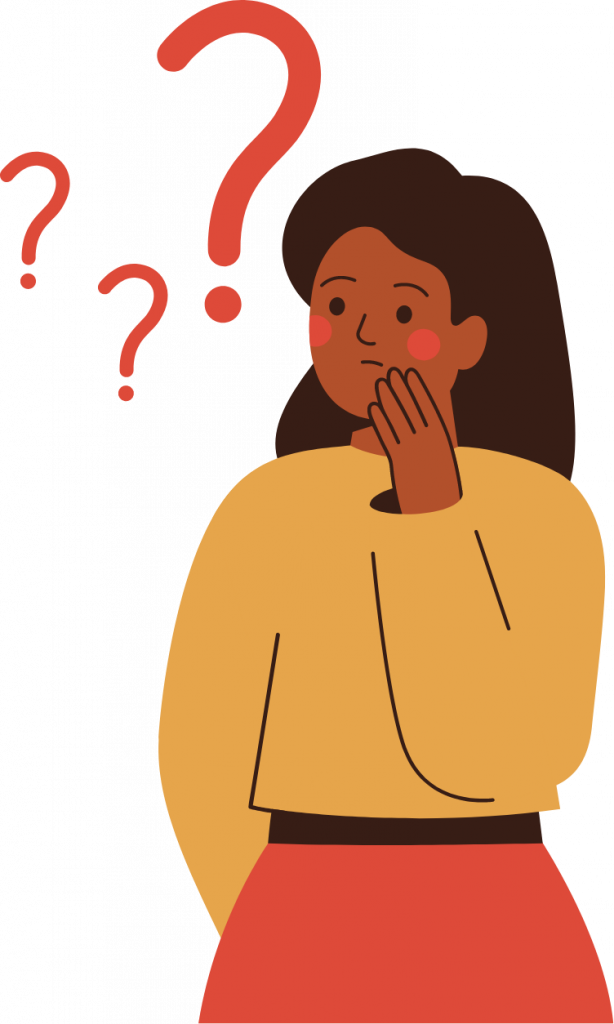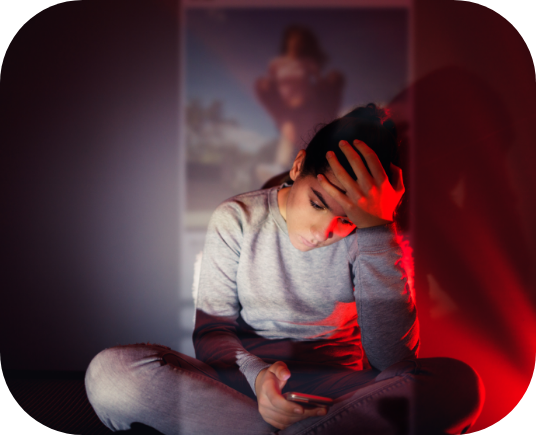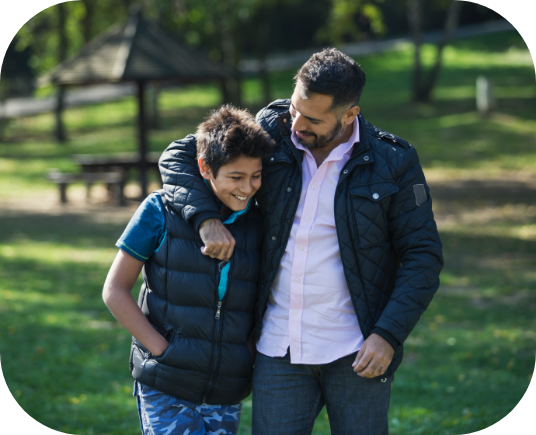

Bullying
What Is Bullying?
Bullying is mean and hurtful behaviour.
Bullying is:
Intentional: the person is mean and hurtful on purpose. If they do not mean to do it, it is an accident.
Repeated: the person is mean more than once. If they are hurtful one time, that is them being rude or inconsiderate.
Power Imbalance: the person is using their power negatively. Their power could come from: being older, being bigger/stronger, having more friends, knowing more, having more confidence, or having more things. If there is no power imbalance, it is a conflict.
Who Does Bullying Involve?
The person who is targeted by the bullying behaviour.
The person who is bullying.
The person who witnesses the bullying.
These roles can shift, and people can find themselves in more than one of these roles in different areas of their lives.

What Are the Types of Bullying?
Verbal: using words to be mean and hurtful
For example: teasing, insults, threatening, making jokes, humiliating someone, racist/sexist/homophobic comments, or sexualized language
Physical: harming someone’s body or their things
For example, hitting, slapping, punching, pushing, choking, hazing, spitting, stealing/wrecking someone’s property, grabbing, or choking.
Social: harming someone socially, like ignoring someone, telling secrets, ruining friendships, or inviting someone to do something and not showing up.
For example, spreading rumours, telling secrets, ganging up on someone, ignoring someone, keeping someone away from their friends, or making plans with someone and not showing up to be mean.
Cyberbullying: using technology to be hurtful, like texting mean things or posting things on social media.
For example, sending hurtful or mean messages via text, email, social media, or phone call, sharing an embarrassing picture of someone without permission, pretending to be someone else online, or creating pages or polls to rate people in a hurtful way.

Who Does Bullying Hurt?
Everyone! Bullying does not just hurt the target. It harms the witness and the aggressor, too.
When someone is bullied, it can be really hurtful and have many negative outcomes.
When someone is being mean to others, it is often because they are not feeling well and do not love themselves.
If someone sees someone being bullied, it can be scary and cause the person to worry they are going to be next.
Bullying does not just hurt in the moment. There are many consequences to bullying (for all people involved).

The person being bullied might feel or experience:
- Sad
- Scared
- Lonely
- Low self-esteem
- Isolating from friends and family
- Panic attacks
- Anxiety
- Sleeping too much
- Nightmares
- Not being able to sleep
- Stomachache
- Headache
- Depression
- Anger
- Substance use and misuse
- Acting out
- Doing poorly in school/poor concentration
- No motivation
- Thoughts of suicide
The person who witnesses bullying might feel or experience:
- Guilt
- Shame
- Fear
- Anger
- Anxiety
- And more
The person who is bullying another might feel or experience:
- Poor social skills
- Lonely
- Anger
- Scared
- Low self-esteem
- Poor concentration
- Sad
- Depression
- Higher risk of criminal activity later in life
- High risk of being involved in dating violence, sexual harassment, and criminal behaviour later in life
- Thoughts of suicide
This is why we need to get help.
How to Deal With Bullying?
There are a couple things you can do to deal with bullying:
If you are bullied:
- Cyberbullying
- Block/delete them
- Save the messages for proof
- Do not respond
- Report the bullying to the site, trusted adults, and the police
- Use the bullying helpline 1-888-456-2323
- Bullying Helpline Chat, click here to be directed to the chat page. It is available from noon to 8 p.m. daily MST
- Call the Kids Help Phone 1-800-668-6868
- Other Bullying
- Tell the person to stop
- Use humour and confidence
- Show the person their words do not matter or mean anything
- Know what they are saying is about you is more about them
- You can use confidence by staying calm. They are looking for a reaction.
- Using humour is taking what they say and “owning” it in a humorous way. For example, if they say, “You’re so ugly,” you could respond with “I know, right?? It’s actually amazing how ugly I am.” Remember, this is not you validating what they say! It is just showing them their words don’t have power.
- Ask for support
- Get friends to walk with you. Use the buddy system.
- Walk away if you can
- Tell a helping adult
- If the first one does not take you seriously, tell someone else.
- Use the bullying helpline 1-888-456-2323
- Bullying Helpline Chat, click here to be directed to the chat page. It is available from noon to 8 p.m. daily MST
- Call the Kids Help Phone 1-800-668-6868

Further Resources
If you would like to speak to someone about mental health issues, the Alberta Health Services Mental Health Help Line is available 24/7, offering information and referrals on any aspect of mental health.
Call toll-free: 1-877-303-2642
Trending Topics
Body Awareness Grounding
Body Awareness Grounding Grounding helps to bring us to the present moment. Darth Vader breathing. Take a deep, slow breath through your nose. Breathe out
Dimensions of Health
Dimensions of Health How do you feel when you wake up on your best day? You probably feel well-rested. You probably wake up to a
Progressive Muscle Relaxation Technique
Progressive Muscle Relaxation Technique Progressive muscle relaxation is a great way to relax and recharge! It helps to lessen those stressful feelings. It connects your
Substance Use and Abuse
Substance Use/Abuse What Is It? Sometimes our friends experiment with substances, but when does it become a problem? Substance use disorder is when a person

